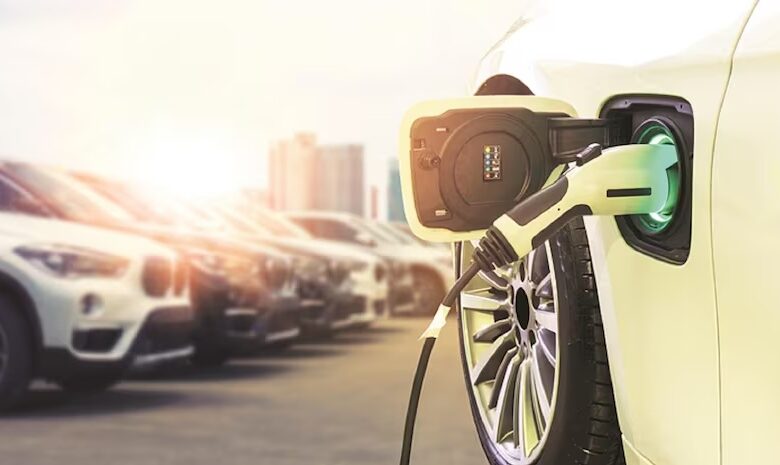Can sales representatives promote the acceptance of electric vehicles?
News Mania Desk / Piyal Chatterjee / 16th February 2025

India’s shift to a net-zero society depends not only on advancements and enhancements in low-carbon technologies but also on people’s readiness to embrace them. Although frequently disregarded, both personal and group efforts are essential for decreasing greenhouse gas emissions in vital areas like energy production, electricity use, and transportation.
In India, emissions connected to mobility rose by 224 percent from 2000 to 2019, accounting for one-fifth of the carbon footprints of Indian households. Speedy urban growth and increasing incomes are prompting an increasing number of households to obtain private, motorized vehicles. Nonetheless, advancements in this field, particularly concerning the electrification of road transport, possess considerable promise for furthering decarbonisation objectives. The International Energy Agency states, “A battery electric vehicle purchased in 2023 will produce half the emissions of traditional counterparts throughout its lifespan.” This has intrigued governments globally, including India’s, which aims for 30 percent of private car sales and 80 percent of private two-wheeler sales to be electric by 2030. To reach these objectives, it is essential for customers to be encouraged to embrace this new technology.
A recent study by the Centre for Social and Behaviour Change (CSBC) at Ashoka University reveals that lack of awareness, misinformation, and significant initial expenses are the primary obstacles preventing Indian households from embracing low-carbon technologies like electric vehicles (EVs). To overcome these obstacles, policy modifications are needed; tackling structural issues like expenses; and enhancing communication to counter misinformation and educate consumers on operations, savings, and the advantages linked to EVs. Although numerous potential buyers turn to friends, family, or social media for insights on electric mobility, enhanced sales strategies may play a crucial role in promoting adoption.
Sales representatives can significantly influence the uptake of low-carbon technologies through their direct engagements with clients. In the realm of electric vehicles, sales representatives act as the primary contact and are specially equipped to alleviate worries regarding range anxiety—the apprehension that, even when fully charged, the battery may not provide sufficient range to reach their intended location. Agents can additionally clarify the long-term savings that families can experience and offer a detailed summary of incentives and policies accessible to clients, including registration fee waivers, road tax reliefs, and any other local subsidies and rebates. Crucially, they can serve as dependable sources of information in an environment filled with diverse opinions. Yet, even within the area of behavioral change and climate action, there is minimal research regarding the influence of sales agents in promoting the acquisition of low-carbon solutions.
To shift a needle in this direction, the Low Carbon Lifestyles Project was launched at CSBC, aiming to investigate why households fail to embrace low-carbon technologies and lifestyles. A primary focus of this study was the adoption of electric vehicles, particularly the obstacles at car dealerships that restrict the buying of electric cars. Carried out in Delhi—a city characterized by significant EV adoption, various benefits, and a wide charging infrastructure—the research sought to reveal how sales agents influence consumer choices. The study utilized mixed methods to assess how sales representatives communicate details about EVs and affect consumer decisions. Initially, the team performed detailed interviews with dealership managers and sales staff to explore their views and beliefs regarding EVs, in addition to assessing the level of training on the latest EV models. Secondly, by employing ‘mystery shopping’, researchers acted as prospective buyers visiting dealerships to evaluate the promotion of EVs.
A key barrier hindering sales agents from successfully conveying the advantages of EVs and encouraging their adoption is a lack of understanding regarding the technology. In the comprehensive interviews, roughly 80 percent of sales agents indicated that they had undergone training on EVs. Nonetheless, mystery shopping uncovered insufficient knowledge and evident information deficiencies regarding several subjects, such as existing government incentives, long-term savings, and charging infrastructure. As a result, 44 percent of mystery shoppers believed that their concerns regarding EVs remained unaddressed.
This absence of understanding not only creates uncertainty for potential customers regarding a new technology but also strengthens existing consumer obstacles and prejudices, like range anxiety. When mystery shoppers inquired with sales agents about public charging options in Delhi—a city with almost 2,000 stations—numerous agents were oblivious to any public charging facilities and remarked that “EVs ought to be charged at home.”
Consumers also face present bias, in which the significant initial expense of the vehicle overshadows its savings over time. For instance, the research revealed that the Tata Nexon XM petrol variant is priced at INR 8,79,900, while the electric variant comes at a much higher price of INR 14,49,000. Nonetheless, with the operating expense per kilometre at INR 5.94 for petrol versus only INR 0.60 for electricity, the EV provides significant savings in the long run. However, the attractiveness of the electric version is diminished because customers concentrate on its immediate, greater initial expense instead of potential future savings. Regrettably, sales representatives, who could assist in addressing this by emphasizing incentives and savings, seldom offered such details unless prompted. Mystery shoppers frequently needed to inquire about government incentives, leading many agents to give inaccurate details, such as informing clients that “programs vary every day.”
The research additionally revealed that agents showed internal biases that hindered their capacity to effectively advocate for EVs. One form of bias, referred to as ‘suitability bias’, entails agents choosing which customers to advocate for EVs based on criteria like job type and present vehicle ownership. This inhibits potential buyers from obtaining the information necessary to make a knowledgeable choice regarding EVs.
For instance, no mystery shoppers in the study were presented with an electric vehicle unless they inquired about it. Some individuals were inquired about the car they currently operate; when mystery shoppers informed the agents they were new buyers, they were advised against thinking about an EV. Additionally, in thorough interviews, agents mentioned they would exclusively recommend EVs to individuals who drive over 80 kilometres daily, since these customers are more prone to experience a faster return on investment. This eliminates numerous possible purchasers and presumes that individuals will purchase EVs solely for financial incentives, rather than for social or environmental considerations.
Additional obstacles at dealerships also restricted sales agents’ capacity to advocate for EVs. For instance, during the research period, only 11 non-luxury EV models were available in India, with Tata Motors being the sole manufacturer providing more than one model. This restricted range limits the agents’ capability to recommend EVs, since customers might have particular preferences that the available EV models cannot fulfill.
Moreover, there was a limited supply of EVs throughout the study, likely resulting from increased demand following the pandemic. This shortage led agents to recommend non-EV models to numerous clients who had particular timelines in mind. Additionally, mystery shopping showed that only a few cars were available for test drives, and these needed to be reserved beforehand.
Sales scripts and improved training can provide agents with the necessary knowledge to communicate efficiently with customers. These tools can reduce agents’ knowledge deficits and clarify intricate subjects, like the long-term savings associated with EVs. To carry this out, sales and product teams in automotive companies could create scripts tailored to specific contexts or regions. These scripts might contain information on local incentives, savings versus fuel costs, and details regarding the charging infrastructure present in the region. By customizing scripts to tackle local issues and offering sufficient training, sales representatives will be more equipped to interact with customers, clarify misinformation, and navigate other obstacles to EV adoption.
The private sector can arrange experiential events enabling sales agents to actively interact with the EVs they offer. This may help eliminate intrinsic biases and enhance understanding of the product. For instance, organizing EV test drives exclusively for sales representatives could assist in clarifying misconceptions regarding EV performance and functionality. An update from 2022 on a 2017 study carried out in Sweden suggests enhancing EV adoption at dealerships, as this may aid in diminishing knowledge gaps and biases. It proposed resources like discounted short-term leases for employees of electric vehicles, enabling agents to experience the cars directly and enhance their knowledge and assurance in advocating for EVs to clients.
Agents frequently depend on suitability bias to pinpoint target customers for EVs, presuming that financial incentives are the main factors influencing EV purchases. This belief restricts the possible customer pool. Automakers can tackle this issue by creating clear, research-supported guidelines that assist agents in identifying a wider variety of potential customers. Studying the demographics, values, and beliefs of early EV adopters can help shape these guidelines, allowing sales agents to broaden their customer base. These recommendations may assist agents in concentrating on clients who are driven by environmental concerns or interested in innovative, state-of-the-art technologies.
Government assistance is essential for addressing hurdles to EV adoption. The government is crucial in enhancing public charging facilities and creating incentives to lower the cost of EVs. Automobile manufacturers and sales representatives engage directly with customers and possess knowledge about the difficulties consumers encounter in comprehending government incentives. Through partnerships with government agencies, automobile manufacturers can assist in standardizing financial communications on government websites. This may entail developing clear, uniform communication regarding waivers, subsidies, and additional incentives, utilizing standardized infographics and posters. Information from the private sector can guide these initiatives, assisting customers in comprehending and utilizing government assistance for EV adoption more effectively.
Tackling emissions from transportation is a critical priority for India to reach its net-zero targets. Electric mobility will influence our capacity to decrease greenhouse gas emissions, and various stakeholders need to unite to facilitate this shift. Although policy and planning are essential for facilitating access to low carbon mobility, people must be encouraged to embrace these changes and shift from the current state. Sales plays an essential role in this.






